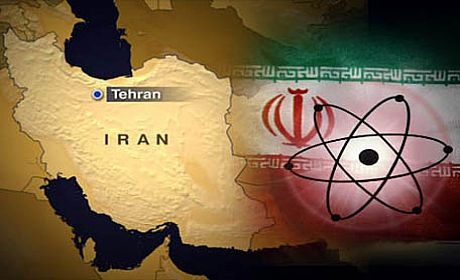Iran Should Reveal Its Nuclear Intention

In his speech at the UN General Assembly, Barack Obama reiterated that a nuclear Iran is not acceptable. By nature, how different is this position from the position of the Israeli regime?
The meaning of nuclearization in the US is different from its meaning in Israel. The red line for Israel is much lower, i.e. it does not even want Iran to have the capability of building nuclear weapons. But the US has not yet shown any sensitivity in this regard. It means that Iran, like Japan, can be capable of building nuclear weapons. Japan has the ability to produce nuclear weapons, but it does not move towards producing these weapons. The US believes that if Iran moves towards producing nuclear weapons, it will be informed through its intelligence services and can therefore prevent it. Therefore, the US does not feel pressured to prevent the progress of Iran's nuclear program.
But if Israelis get the chance, they don't even want Iran to exist on the world map. Therefore, in the view of the Israelis, the capacity and capability of producing nuclear weapons in Iran is basically unacceptable. But the issue in the US is the operationalization of this capacity towards the production of nuclear weapons. These are two different issues. I think that nobody agrees with Israel's point of view. The non-aligned countries believe that all countries must have the ability to use peaceful nuclear energy. But Israel does not even believe in this right.
Some believe that the officials of the Zionist regime balanced their positions in the UN. In your opinion, how close is this issue to the reality?
Prior to coming to the UN, the Israeli officials had harsher views. But when they listened to Mr. Obama's speech, they felt that they could not achieve their intentions. There have been some disagreements with Israel in the General Assembly and many countries do not agree with Israel's opinions. Therefore, it seems that the officials of the Zionist regime have, to some extent, balanced their positions and are thinking about collaborating with the US against Iran's nuclear program. This is while, before the General Assembly, the Zionist regime's officials had even threatened to unilaterally attack Iran without US collaboration. Therefore, it seems that the atmosphere is somehow calmer.
Under these circumstances, can the previous resolution of the IAEA Board of Governors be enforced?
Iran believes that the IAEA must determine which sites the inspectors intend to visit. They must present these sites to Iran in the framework of a program so that Iran would be able to decide about them. So far, the IAEA has not prepared a framework for inspection and supervision. Iran is worried that if it gives permission for Parchin visitation, then other sites would be asked to be visited. The IAEA must declare which sites it is interested in and inform Iran in a program. What Iran proposes is quite right. They claim that as long as we are not able to visit dubious sites, we cannot approve the peacefulness of Iran's nuclear program. Even though these two statements have been repeated several times, it has also been mentioned this time around.
Nevertheless, it seems that the NAM Summit in Iran and the political situation in the US with regard to the presidential election, have reduced the importance of the IAEA report and tensions. Therefore, it seems that, at the present time, the Board of Governors resolution is not a priority, other issues like the Syrian crisis being the points of attention.
In your opinion, what is the reason behind Netanyahu's insistence on drawing a red line and setting a time limit?
Drawing a red line means that, after passing this threshold, the Zionist regime could permit itself to enter a war. The Zionist regime has drawn a red line for itself, until which it can be patient. This red line, although it can be interpreted differently, was drawn in a way which stated that Iran has been able to progress 70% towards building an atomic bomb, and if it reaches 90%, then Israel would enter the scene.
As it was mentioned before, the issue of bluffs and propaganda must be separated from the issue of launching an attack. It means that if the Zionist regime really wanted to take specific steps, it would not have made so much noise around it. It seems that the Zionist regime only intends to change the atmosphere in favor of its own interests. It seems that Netanyahu intended, to some extent, to impact the US presidential election. But it met defeat in this issue and was not able to gain Obama's support. Netanyahu took a big risk and put all his eggs in Mitt Romney's basket. Considering the fact that Mitt Romney is trailing Obama in the polls, Netanyahu has lost this gamble.
What perspective is foreseeable in this path?
Although these threats have somehow been reduced, Iran must take these threats seriously and work towards clarifying its positions and prove that it is not after a nuclear military program. This issue has not been dealt with as it should be and some believe that Iran's nuclear program has had military aspects and still does. The critical point is that the same sources that have discussed the military dimensions of Iran's nuclear program, i.e. the 16 US intelligence organizations, have stated that since 2003, the intention of military use of the atomic energy has not existed in Iran. It must be clarified that Iran does not pursue the military dimensions of using nuclear energy.

